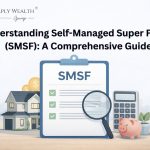The Ultimate Guide for First-Time Home Buyers in the Australian Market For 2025
Buying a house is a significant milestone. For first-time home buyers in Australia, it can be both exciting and daunting.
The Australian housing market is complex. It’s essential to understand its intricacies before diving in.
This comprehensive guide is designed to help. It will navigate you through the process of buying your first home in Australia.
We’ll cover everything from understanding the market to securing finance. We’ll also delve into the legalities and the final steps of settling into your new home.
Our aim is to equip you with the knowledge you need. This will ensure you’re well-prepared for your home-buying journey.
So, whether you’re just starting to consider buying a house or you’re already on the hunt, this guide is for you. Let’s embark on this exciting journey together.
Understanding the Australian Housing Market
Australia’s housing market is dynamic and diverse. It’s influenced by economic conditions, population growth, and government policies.
For first home buyers, staying informed about market trends is crucial. Trends influence property values and your purchasing power.
It’s important to recognize that property prices can vary significantly. Factors like location, proximity to amenities, and local infrastructure all play a role.
Here’s a list of key aspects to consider:
- Market Trends: Keep an eye on price fluctuations and buyer demand.
- Location: Desirable locations often command higher prices.
- Property Type: Know whether you prefer a house, apartment, or unit.
Understanding these elements will help you make informed decisions. Research and analysis are your friends when diving into the property market.
Engage with property reports and market forecasts regularly. This insight will empower you to predict potential investment returns and property appreciation. Familiarizing yourself with these variables lays a strong foundation for your home-buying journey in Australia.
Assessing Your Financial Capacity
Before buying a house, understand your financial capacity. This involves calculating your income, expenses, and savings. Determine how much you can comfortably afford for a deposit and ongoing mortgage repayments.
Consider all sources of income, including salary, investments, and any other earnings. Having a clear picture of your financial situation helps set realistic home-buying goals. It’s essential to account for lifestyle expenses alongside potential mortgage payments.
Don’t forget to factor in additional costs. These may include stamp duty, legal fees, and property maintenance. A comprehensive financial assessment ensures you are prepared for any financial commitments.
Taking the time to assess your financial capacity will prevent future stress. It also increases your chances of obtaining a home loan. Knowing your limits is key to a successful home-buying experience in Australia.
The Importance of Budgeting
Budgeting is a critical step for every first home buyer. Begin by tracking your income and expenses over several months. This provides a solid understanding of your cash flow.
By creating a detailed budget, you can identify areas to cut back on. Allocate extra funds towards your home deposit. This discipline helps build financial confidence.
An effective budget lays the foundation for future financial health. It can also support saving goals and safeguard against unexpected expenses. This ensures you’re well-prepared for purchasing a home.
Improving Your Credit Score
A good credit score is vital when applying for a home loan. It influences the terms of your mortgage and your interest rates. Begin by checking your credit report for any errors.
Pay off outstanding debts and maintain a consistent payment history. These actions will gradually enhance your credit score. Credit improvement often requires patience and persistence.
It’s important to keep credit inquiries to a minimum. Excessive inquiries can negatively impact your score. Staying mindful of these factors will benefit your home-buying journey in the long term.
First Home Owner Grant and Other Incentives
Australia offers various incentives to encourage first-time home buyers. The First Home Owner Grant (FHOG) is a popular initiative. This grant helps reduce the financial burden of buying a house.
The FHOG provides a one-time payment to eligible first home buyers. The grant amount and eligibility criteria vary by state or territory. It’s essential to research specific details based on your location.
Other financial incentives can complement the FHOG. These include the First Home Loan Deposit Scheme and stamp duty concessions. Each incentive aims to make home ownership more accessible.
Here’s a quick list of common incentives for first home buyers:
- First Home Owner Grant (FHOG)
- First Home Loan Deposit Scheme
- Stamp duty concessions
- HomeBuilder grant (varies by state)
These incentives can significantly impact your budget. Understanding them helps you capitalize on potential savings. Engaging a financial advisor can further clarify which incentives suit your needs.
State-Specific Grants and Concessions
Each Australian state offers unique grants for first-time buyers. These grants can enhance the benefits of the FHOG. Research is key to understanding what’s available in your state.
For instance, some regions provide additional grants for purchasing new properties. Meanwhile, others offer specific concessions on properties in regional areas. These localized incentives can reduce your initial expenses.
Eligibility criteria can vary. Common factors include the type of property, its value, and your residency status. Checking these requirements ensures you apply for all applicable grants.
Exploring state-specific opportunities can yield considerable savings. Familiarize yourself with local regulations and policies. This knowledge is invaluable in your home-buying journey.
Financing Your Home Purchase
Securing the right financing is a critical step in buying a house. Understanding your options will help you make informed decisions. Begin by exploring various home loan products available in the market.
It’s important to consider both fixed and variable interest rates. A fixed-rate loan offers predictable payments over time, while a variable rate can fluctuate. Weighing the pros and cons of each type can guide your choice.
Saving for a deposit is another essential aspect of financing. The higher your deposit, the less you’ll need to borrow. This can also affect your loan interest rate and overall loan terms.
Additional costs, such as lender’s mortgage insurance (LMI), may apply if your deposit is below 20%. Factoring in these expenses will ensure a realistic budget. Consulting a mortgage broker can offer insights into optimizing your finance strategy.
Understanding Home Loans
Home loans are a cornerstone of purchasing property. They enable you to finance your new home. The two main types are fixed and variable rate loans.
A fixed-rate loan keeps your interest constant over time. This predictability aids in budgeting monthly expenses. However, it might be less flexible if rates drop.
Variable-rate loans adjust with market changes. They can be more affordable if rates decrease but carry a risk if rates rise. Weighing these options based on your financial situation is crucial.
Interest types impact your repayments and overall costs. Consider your financial goals when choosing between fixed and variable. The right home loan aligns with your current and future plans.
Getting Pre-Approval
Pre-approval is an essential step in the home-buying journey. It provides a clear picture of your borrowing capacity. Lenders evaluate your financial health and offer a preliminary borrowing limit.
Having pre-approval strengthens your position as a buyer. It shows sellers you’re serious about purchasing. It can even give you an advantage in competitive situations.
The process involves submitting financial documents to your lender. They assess your income, debts, and credit history. Once pre-approved, you’ll have a clearer understanding of your budget.
Pre-approval can streamline your home search. With a defined budget in place, you can focus on properties within your range. It simplifies decision-making and enhances confidence when making offers.

Choosing the Right Location
Selecting the right location is a crucial step in buying a house. Location affects not just your lifestyle but also property value. Consider proximity to work, schools, and amenities.
Evaluate the neighborhood’s vibe to ensure it aligns with your lifestyle. Visit the area at different times to gauge traffic and noise levels. Check for parks, cafes, and other community features important to you.
Think long-term and consider future developments in the area. Infrastructure projects can impact property values positively or negatively. Balancing these factors helps you choose a location that meets both current and future needs.
The Role of Property Inspections
Property inspections are essential when buying a house. They reveal issues that may not be visible. Knowing about structural problems or pests helps you make informed decisions.
Arrange both building and pest inspections. Engaging professionals ensures a thorough assessment. They will identify potential hazards or necessary repairs.
The inspection results impact your negotiation strategy. If issues arise, you can request the seller to fix them or adjust the price. Being informed gives you confidence in your investment.
The Legalities of Buying a Home
Understanding the legal aspects of buying a house is vital. Navigating these complexities demands attention to detail. Early preparation helps prevent future problems.
The contract of sale is a key document. It outlines the terms of your agreement. Reading it carefully ensures you understand your obligations. Visit Simply Wealth Group for all your assistance in your property investment journey!
A conveyancer plays a crucial role in this process. They handle the transfer of property ownership. Their expertise helps navigate legal procedures efficiently.
Always be aware of other legal requirements, such as insurance or easements. Staying informed protects your interests. Legal advice is an investment in your peace of mind.
Conveyancing and Stamp Duty
Conveyancing is the legal process of property transfer. Hiring a conveyancer aids in document preparation. They ensure compliance with all regulations.
Stamp duty is a tax you must pay when buying property. Understanding its impact is critical. First-time home buyers may qualify for concessions.
Calculate stamp duty costs early. This allows for accurate budgeting. Being informed helps avoid unexpected financial surprises.
Making an Offer and Negotiating
Crafting an offer on a property is a strategic move. It’s important to consider the market value and comparable sales. A well-thought-out offer positions you strongly in negotiations.
Negotiation is often part of the home-buying process. Be prepared to discuss terms, such as price or inclusions. Flexibility can sometimes secure a more favorable deal.
It’s vital to remain calm and composed. Emotional decisions can lead to regret later on. Always have a clear maximum price you are willing to pay, and adhere to it.
The Settlement Process
Settlement is the final step in buying a house. It’s when you pay the remaining purchase price and take ownership. This process requires careful coordination between you, your lender, and your conveyancer.
During settlement, there are several checks to complete. Ensure all conditions in the contract are met. This might include verifying repairs or final inspections.
Expect some waiting time on the settlement day. Once everything is approved, the seller receives the funds. You’ll then get the keys to your new home. Congratulations, you’re now a homeowner!
Moving In and Beyond
Now that you’re a homeowner, it’s time to prepare for moving in. Start by organizing the logistics of your move, such as hiring a moving service. Packing your belongings efficiently makes the move easier.
Once in your new home, setting up utilities is crucial. Arrange for electricity, water, and internet to be active on your move-in day. This ensures a smooth transition into your new lifestyle.
Lastly, connect with your new neighborhood. Meeting your neighbors builds a sense of community. It’s also a great way to discover local resources and amenities.
Setting Up Your New Home
Personalizing your new space is both exciting and rewarding. Begin by arranging your furniture to create a comfortable and functional environment. This can make your home feel truly yours.
Consider small improvement projects. Adding a fresh coat of paint or updating fixtures enhances your home’s appearance. These changes also contribute to a sense of ownership and pride.
Safety is key in a new home. Install smoke detectors and check the security of locks and windows. These simple steps ensure that your home is safe and secure.
Long-Term Financial Planning
Owning a home involves ongoing financial commitments. Budget for regular expenses like mortgage payments, maintenance, and insurance. Having a clear financial plan can reduce stress over time.
Think about making additional mortgage payments. Paying extra when possible can significantly reduce your loan term. This saves money on interest and boosts your equity faster.
Consider the future value of your home. Market trends can affect property value, impacting potential resale decisions. Staying informed helps you make smart financial choices in the long run.
Conclusion and Next Steps
Embarking on the journey of buying your first home in Australia is a major milestone. It involves careful planning, understanding the market, and making informed decisions. With the right approach, you can navigate this process successfully.
As you move forward, remember to utilize available resources and seek professional advice when necessary. Attending seminars, consulting mortgage brokers, or engaging with real estate agents can provide valuable insights. These steps help you make better decisions and avoid common pitfalls. Also check out Simply Invest Group for financial assistance in your property investment journey!
Finally, be patient and persistent. The right opportunity will present itself in time. Stay focused on your goals, and soon you’ll enjoy the rewards of homeownership. Celebrate your achievements and cherish your new beginnings.








